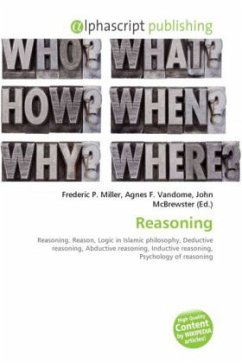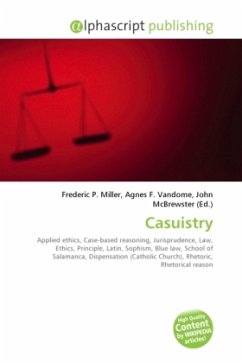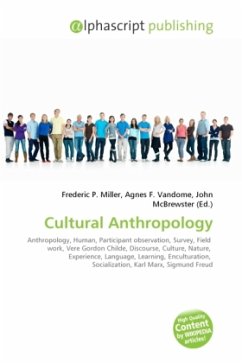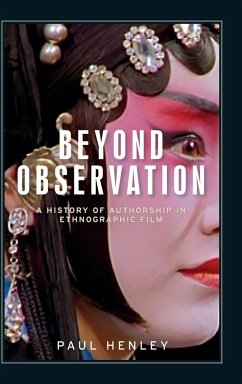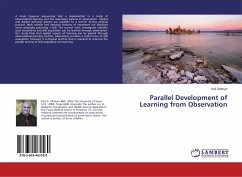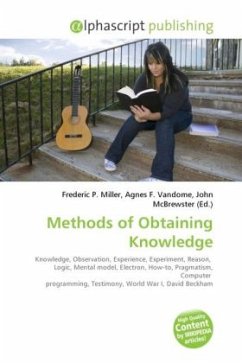
Methods of Obtaining Knowledge
Versandkostenfrei!
Versandfertig in 6-10 Tagen
58,99 €
inkl. MwSt.

PAYBACK Punkte
29 °P sammeln!
Knowledge may originate or be derived from the following origins or methods: Observation or experience. This may be more or less sophisticated, ranging from a simple, "I saw" to carefully designed controlled experimentation. Reason or logic. Taking other knowledge as data, by logical operations knowledge can be inferred. For example the theoretical construct, the electron, is derived by logical inferences from observations and experiment. Such knowledge, being derivative, can not be better than the knowledge upon which it is founded. Modelling a situation sometimes allows those with a hands-on...
Knowledge may originate or be derived from the following origins or methods: Observation or experience. This may be more or less sophisticated, ranging from a simple, "I saw" to carefully designed controlled experimentation. Reason or logic. Taking other knowledge as data, by logical operations knowledge can be inferred. For example the theoretical construct, the electron, is derived by logical inferences from observations and experiment. Such knowledge, being derivative, can not be better than the knowledge upon which it is founded. Modelling a situation sometimes allows those with a hands-on viewpoint to learn how-to do something. This pragmatic approach is often seen in computer programming. Knowledge based on the acceptance of testimony involves accepting what others say. For example, I only know that Kent is a county of England, that the First World War was horrendous and that David Beckham earns $30 million per year because I have learned these things from other people. This seems to be a common way we get knowledge but is seen by philosophers as problematic.




